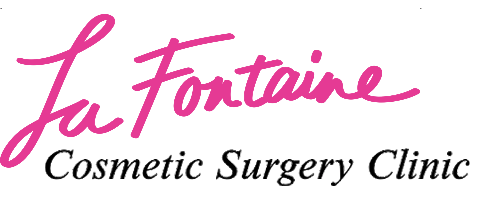Cosmetic surgery performed on the breasts is also called mammoplasty. There are three general categories, namely:
- Breast augmentation
- Breast reduction
- Breast reconstruction
Breast Augmentation
Breast augmentation enhances the appearance, size and contours of a woman’s breasts and may be performed for different reasons. Sometimes, a woman may feel that her breasts are too small and sometimes the procedure is done after pregnancy when a woman’s breasts change. Still others want to correct asymmetry in breast size.
Breast augmentation is achieved using implants that can be placed under or over a chest muscle. An incision can be made in the armpit, in the area surrounding the nipple or in the lower breast fold. Most breast augmentations are minimally invasive procedures. When the incision is made in the armpit, an endoscope, which is a thin tube with a small camera and light on the end, may be used during the procedure.
The breast implants used are either made of a silicone shell filled with saline (a salt water solution) or silicone gel. Trial implants are used to determine what size a woman wants.
With any surgery, some uncertainty and risk are expected, but the procedure is relatively straightforward. Find a board certified plastic surgeon to go over the benefits, risks and alternatives with you.

Breast Reduction
Women with large, heavy breasts, who experience significant discomfort from neck and back pain and numbness or weakness due to the weight of the breasts, often seek breast reduction surgery.
During breast reduction surgery, excess skin, fat and breast tissue are removed. Afterward, there may be a change in breast sensation, as well as an inability to breastfeed, but most women report relief from the above-mentioned symptoms.
Breast Reconstruction
Women who undergo a mastectomy due to breast cancer often have breast reconstruction surgery, which recreates a breast with the desired appearance, contour and volume. The nipple and areola are also reconstructed. However, when the sensory nerves or milk glands and ducts have been removed or significantly injured, normal breast sensation and normal breast function, as with nursing, won’t usually return.
A woman’s own tissue can be used to recreate the appearance, contour and volume of the breast or it can be done with implants. When an implant is used, it is sized to match the opposite breast and, when possible, the implant is placed beneath a chest muscle.
When a woman’s own tissue is used, sometimes a segment of the lower abdominal wall can be used, sometimes back muscle and skin and sometimes fat and muscle from the buttocks. In order to create symmetry with the newly reconstructed breast, it is sometimes necessary to perform surgery on the normal breast, too.
Breast reconstruction can be done any time after a mastectomy. It has no known effect on the recurrence of cancer and it doesn’t seem to affect cancer surveillance. However, you will be scheduled for routine follow-up appointments and instructed on breast self-exams.
Breast Lifts (Mastopexy)
In some women, breasts sag because the skin is not strong enough or resilient enough to support their weight. This condition is call ptosis. There is too much skin compared to breast tissue. The excess skin must be removed to give the breasts a lift. Several surgical techniques can be used including:
- Wise pattern is when the incision, in the shape of an anchor, goes around the chest and below the breast.
- LeJeour is when the incision goes around the areola and down.
- Donut or peri-areolar is when the incision goes around the areola only.
There is some degree of permanent scarring with this surgery, but there are products available that may help to minimize their appearance.
What to Expect Post-Surgery
Be sure to talk to your surgeon about your risk of having side effects and complications and any medications he/she may prescribe to minimize them, such as for nausea or pain.
Some cosmetic surgeries take longer to recover from than others. Ask your surgeon how long it will take to heal and how you might feel immediately after surgery. Recovery time depends on the nature and length of the procedure and the type of work you do if it involves physical activity. Your surgeon will tell you about the things you can or can’t do in the first few days, weeks and months after surgery.
Counting the Cost
Provincial health plans rarely cover the cost of elective cosmetic surgery and procedures, unless the surgery is done for medical reasons, such as after having a mastectomy due to cancer.
If you have private health insurance, ask your insurance company these questions:
- Will my policy cover the costs of the surgery, the anesthesia, and/or other related hospital costs? (If only a percentage of the cost is covered, make sure you know how much. Write everything down, including the first and last names of the person answering your questions.)
- Will my insurance premium go up?
- Will my coverage be affected in the future? If so, how?



